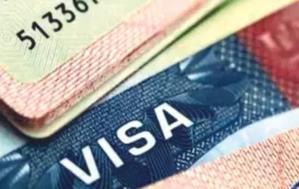
Online Visa 'Scam' Was Done Deceiving Sri Lanka's Cabinet: Experts
Senior attorney and President's counsel Upul Jayasuriya told IANS that the fraudulent deal was done using false documents.
“In the paper filed with the Cabinet, it was stated that $200 million would be invested for this procedure but in the agreement signed by these companies, there was no mention of $200 million. This entire process is a scam. During this transaction, the Cabinet too was deceived by these companies,” Jayasuirya said.
“It was under these circumstances that the country's apex court suspended the operation of this controversial deal,” the senior lawyer added.
He also charged that through the controversial deal, several fraudulent activities had taken place.
“This company was also given the exclusive authority to promote tourism in Sri Lanka. There are many state-run institutions including the Tourist Board and Tourism Promotion Bureau in addition to a large number of private entities to promote tourism in Sri Lanka.
"But ignoring all these, the monopoly to promote the country's tourism was given to a consortium of foreign companies which is a completely fraudulent deal,” Jayasuirya said.
He also stressed that the country's national security was affected as all the tourists arriving in the country were exposed to third parties.
Meanwhile, Tamil National Alliance (TNA) Parliamentarian M.A. Sumanthiran, on whose petition the Supreme Court suspended the operations of three companies, said the total loss to the government from this fraud amounted to around $1.4 billion.
“The service that local company Mobitel offered for $1 went up to $17.5 under this new company,” Sumanthiran, also a lawyer, told IANS.
He said that every dollar charged for an online visa was directly going to Dubai whereas when done by the state-run telecommunication company, the money is deposited with the Treasury.
“This is clearly a fraud,” he said.
In April this year, the Immigration Department under mysterious circumstances barred the state-run telecommunication company Mobitel, which handled the Electronic Travel Authorisation (ETA) system for issuing visas to tourists visiting Sri Lanka, and handed over the task to a tripartite foreign company.
The three parties included Singapore-registered GBS Technology Services, the UAE-registered IVS Global-FZCO, and the Dubai-headquartered VFS VF Worldwide Holdings Ltd., which was originally founded in India.
Following multiple rights cases filed by lawmakers, rights activists, and tour operators, the Supreme Court ordered to immediately suspend the services provided by the foreign companies and revert to the local telecommunication entity.
On May 2, the scam came to light when a Sri Lankan traveller posted a video taken at the on-arrival visa counter at the Bandaranaike International Airport (BIA), complaining about denying visa to his partner.
In the video which went viral, he complained that Indian nationals were operating the VISA counter, questioning why Sri Lankan officials were not engaged in the process.
However, Public Security Minister Tiran Alles defended the VFS-led consortium, stating that the video was an attempt to sabotage, as he threatened to take legal action against the traveller.
The High Commission of India in Colombo was also quick to refute the allegation that an 'Indian company' was involved in visa issuance at the BIA.

Legal Disclaimer:
MENAFN provides the
information “as is” without warranty of any kind. We do not accept
any responsibility or liability for the accuracy, content, images,
videos, licenses, completeness, legality, or reliability of the information
contained in this article. If you have any complaints or copyright
issues related to this article, kindly contact the provider above.

















Comments
No comment